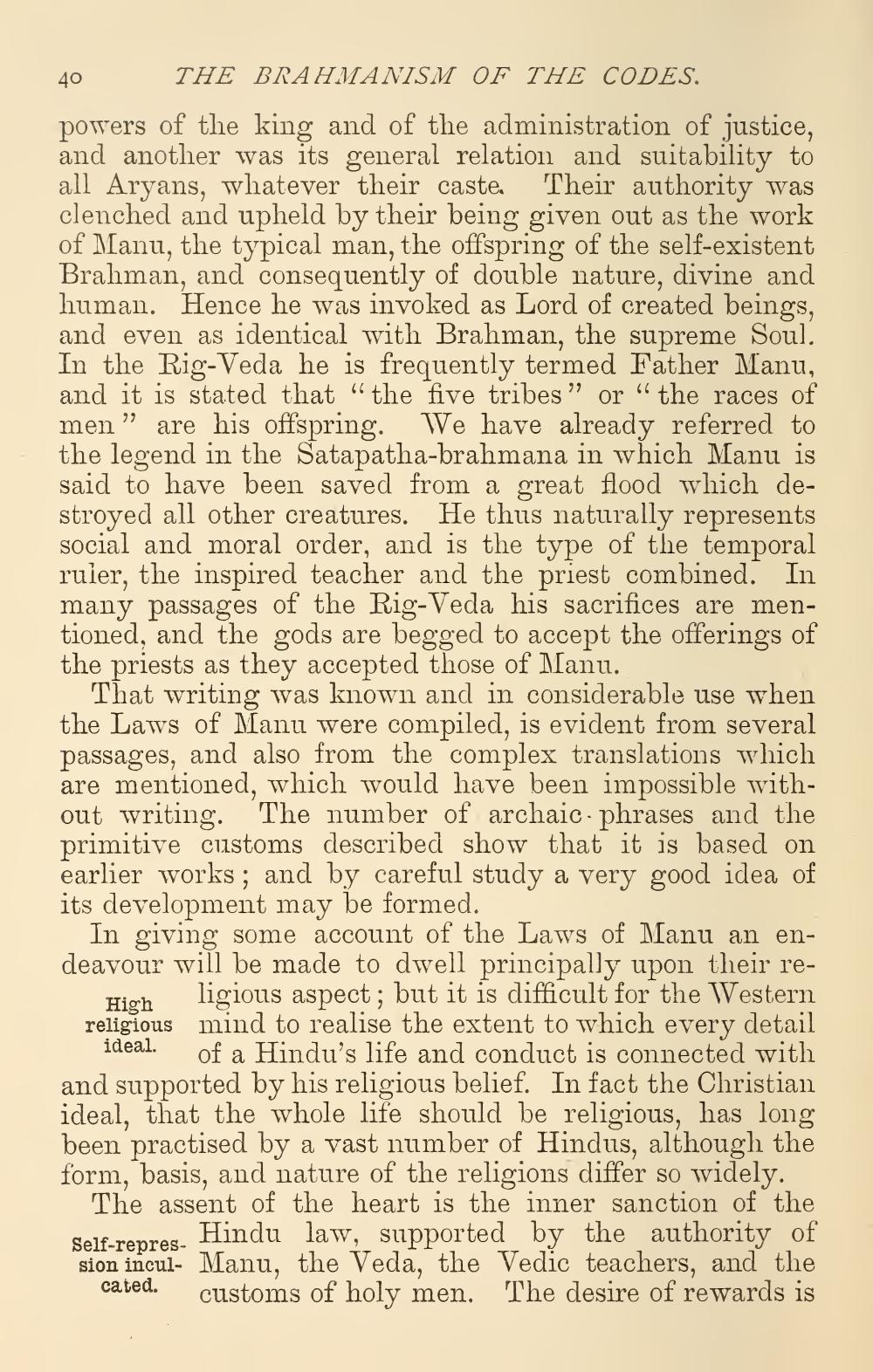________________
40 THE BRAHMANISM OF THE CODES. powers of the king and of the administration of justice, and another was its general relation and suitability to all Aryans, whatever their caste. Their authority was clenched and upheld by their being given out as the work of Manu, the typical man, the offspring of the self-existent Brahman, and consequently of double nature, divine and human. Hence he was invoked as Lord of created beings, and even as identical with Brahman, the supreme Soul. In the Rig Veda he is frequently termed Father Manu, and it is stated that “the five tribes” or “the races of men” are his offspring. We have already referred to the legend in the Satapatha-brahmana in which Manu is said to have been saved from a great flood which destroyed all other creatures. He thus naturally represents social and moral order, and is the type of the temporal ruler, the inspired teacher and the priest combined. In many passages of the Rig Veda his sacrifices are mentioned, and the gods are begged to accept the offerings of the priests as they accepted those of Manu.
That writing was known and in considerable use when the Laws of Manu were compiled, is evident from several passages, and also from the complex translations which are mentioned, which would have been impossible without writing. The number of archaic. phrases and the primitive customs described show that it is based on earlier works; and by careful study a very good idea of its development may be formed.
In giving some account of the Laws of Manu an endeavour will be made to dwell principally upon their re
Hiern ligious aspect; but it is difficult for the Western religious mind to realise the extent to which every detail
ideal. of a Hindu's life and conduct is connected with and supported by his religious belief. In fact the Christian ideal, that the whole life should be religious, has long been practised by a vast number of Hindus, although the form, basis, and nature of the religions differ so widely.
The assent of the heart is the inner sanction of the Self-repres. Hindu law, supported by the authority of sion incul- Manu, the Veda, the Vedic teachers, and the cated.
customs of holy men. The desire of rewards is




